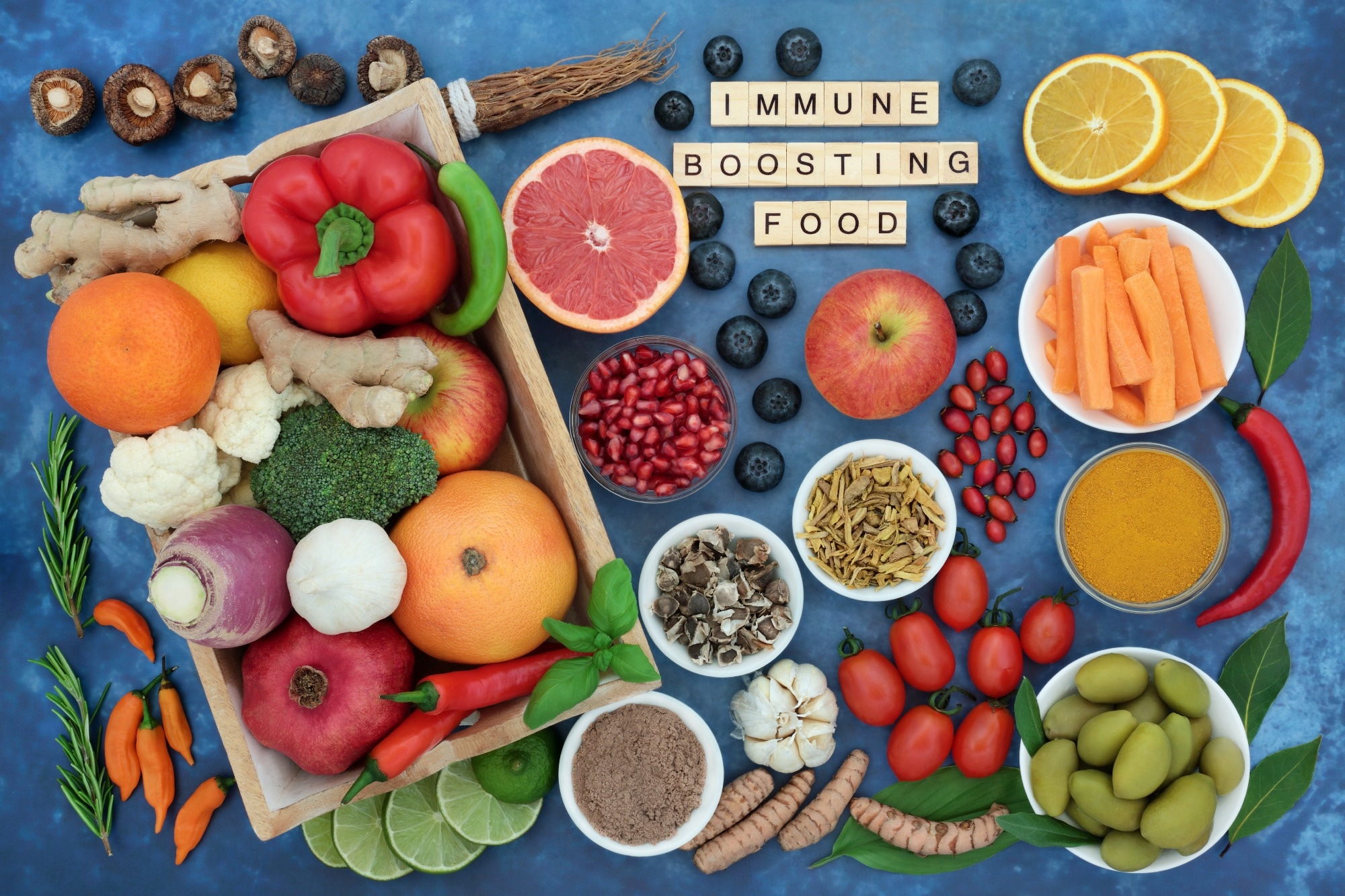Research highlights the potential of plant-derived compounds in addressing chronic conditions like obesity, diabetes, and cardiovascular disease by targeting inflammation, oxidative stress, and microbiota imbalances.
Study: Effects of Phytochemicals on Metabolic Diseases and Human Health. Image Credit: marilyn barbone/Shutterstock.com
A recent editorial published in Nutrients discussed the effects of phytochemicals on human health and metabolic diseases.
Background
Metabolic diseases represent a global health issue due to their growing prevalence and mortality. Obesity, non-alcoholic fatty liver disease, metabolic syndrome, cardiovascular disease, and type 2 diabetes are the most prevalent chronic diseases in nearly all countries.
These conditions are also responsible for disability in those affected. Metabolic diseases could result from physiological, genetic, behavioral, and environmental factors.
As such, reducing the modifiable behavioral factors emerges as a cost-effective strategy, with a healthy diet and physical activity being invaluable tools.
Phytochemicals are abundant in vegetables, fruits, legumes, cocoa, olive oil, and beverages like wine, tea, and coffee. Because of their widespread distribution and health effects, phytochemicals represent a promising therapeutic and protective approach to metabolic disease prevention.
Consistently, there has been a growing interest in the health-promoting properties of phytochemicals in various chronic diseases. While metabolic diseases exhibit different pathogeneses, they still feature dysregulation of metabolic signaling pathways, gut microbiota alterations, and increased inflammation and oxidative stress.
Effects of phytochemicals
The present editorial refers to a special issue on the effects of phytochemicals on health and metabolic diseases. This special issue features multiple studies highlighting the role of microbiota, inflammation, and oxidative stress in metabolic diseases.
One of these studies reviewed clinical studies on flavanols, primarily from cocoa, to assess their impact on vascular health; the study highlighted the role of flavanols in improving endothelial function and reducing blood pressure.
Another study reviewed the effects of Vaccinium L. on diabetes and complications like retinopathy and nephropathy. Likewise, one study reported the benefits of a cocoa-carob blend (CCB) rich in flavanols in reducing islet inflammation by preventing cytokine overproduction and macrophage infiltration; in addition, nuclear factor kappa B inactivation was associated with the prevention of beta-cell apoptosis and beta-cell loss in Zucker diabetic fatty (ZDF) rats.
In a different study, a CCB-supplemented diet alleviated kidney and liver damage in ZDF rats by improving glucose homeostasis, insulin signaling, oxidative stress, and downregulating apoptosis. In these two studies, additive effects were evident by combining CCB with metformin.
One research team demonstrated the mechanism underlying the hypoglycemic effect of epimedin C in diabetic mice; epimedin C is a major flavonoid in Epimedium, an edible herb.
Accordingly, epimedin C downregulates hepatic proteins involved in insulin signaling and gluconeogenesis and upregulates proteins for lipid degradation and digestion.
This alleviates lipotoxicity and protects from oxidative stress in the liver. Further, one study explored the mechanisms of action of a plant extract rich in polyphenols, namely Totum-070, in high-fat diet-fed hamsters and human colonic cells.
This polyphenol-rich extract reduced different inflammatory and lipid gene expression as well as intestinal lipid absorption. A randomized trial revealed that an aged black garlic extract with low S-allyl cysteine doses significantly reduced blood pressure in a grade I hypertensive population receiving antihypertensive drugs.
Another group of researchers showed that polyphenolic leaf extracts from the Mediterranean plant Thymbra spicata contributed to maintaining beneficial metabolites and a balanced microbial environment; moreover, they noted that the extracts could potentially counteract the overgrowth of pathogenic bacteria during dysbiosis.
One study reported increases in beneficial bacteria in rats on apple- and onion-enriched diets. A randomized clinical trial investigated the effects of a multi-ingredient supplement on body composition and weight loss in overweight/obese individuals. The trial showed that the supplement effectively reduced fat mass, weight, and liver markers.
Another study demonstrated that 1,2-dicinnamoyl-sn-glycero-3-phosphocholin increased mitochondrial numbers and genes encoded by mitochondrial DNA to ameliorate insulin resistance.
Further, one research group reported the protective effects of lycopene extracts from fresh and cooked tomatoes. They suggested that the potent antioxidant and anti-inflammatory properties could protect against liver injury and steatosis.
Further, a study showed that evodiamine, an alkaloid from Evodia fructus, reversed depression- and anxiety-like behavior in rodents and protected against hippocampal neuron apoptosis.
Finally, a longitudinal pilot study demonstrated that dietary supplementation of a liquid residue formed during olive oil extraction could improve hematological, metabolic, and anthropometric parameters in individuals at risk of metabolic syndrome.
Concluding remarks
Taken together, the special issue offers insights into recent advances in research on the benefits of phytochemicals in metabolic diseases.
It underscored the role of inflammation, microbiota, and oxidative stress in the pathophysiology of metabolic diseases and the need to increase knowledge of the potential benefits of phytochemicals.
Further in vivo investigations are required before phytochemicals could be recommended as an adjuvant or alternative approach for metabolic disease treatment.
Source link : News-Medica

